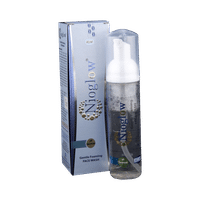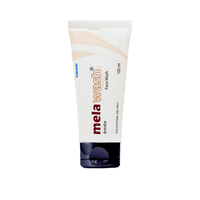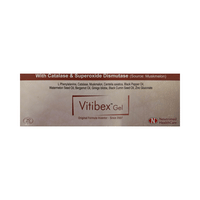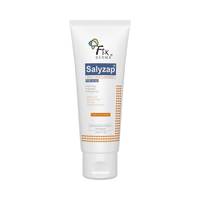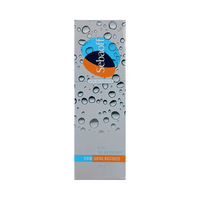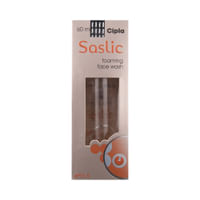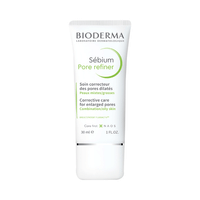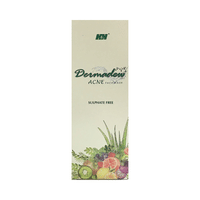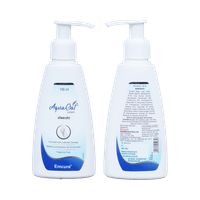Rs. 73.30
Rs. 74.75
2% off
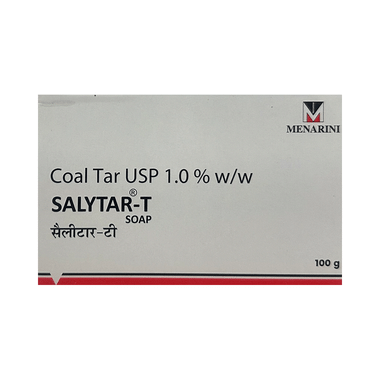
Product Details
Salytar T Soap
Salytar T Soap is a skincare product that contains coal tar as its active ingredient. It is primarily used for the treatment of various skin conditions such as psoriasis, seborrhea, and ichthyosis. Coal tar is known for its moisturizing, anti-inflammatory, antimicrobial, and keratolytic properties. It helps to soothe and moisturize the skin, reduce inflammation, and inhibit the growth of microorganisms on the skins surface.
Key Ingredients:
Coal tar USP,Soap base
Key Benefits:
Good To Know:
Salytar T Soap helps to alleviate the symptoms associated with psoriasis, seborrhea, and ichthyosis and improves the overall condition of the skin.
Concerns It Can Help With:
["Psoriasis", "Fungal skin infection"]
Best Suited For:
All skin types
Area Of Application:
Full body application
Ideal For:
Men/Women
Directions For Use:
Safety Information:
Quick Tips:
["Use a moisturizer that is suitable for your skin type to help keep your skin hydrated and prevent dryness."]
Faqs:
Salytar T Soap is a skincare product that contains coal tar as its active ingredient. It is primarily used for the treatment of various skin conditions such as psoriasis, seborrhea, and ichthyosis. Coal tar is known for its moisturizing, anti-inflammatory, antimicrobial, and keratolytic properties. It helps to soothe and moisturize the skin, reduce inflammation, and inhibit the growth of microorganisms on the skins surface.
Key Ingredients:
Coal tar USP,Soap base
Key Benefits:
- Salytar T Soap contains coal tar which has moisturizing and anti-inflammatory properties that help soothe the skin and improve its condition. It also has antibacterial and antifungal properties that support general skin hygiene.
Good To Know:
Salytar T Soap helps to alleviate the symptoms associated with psoriasis, seborrhea, and ichthyosis and improves the overall condition of the skin.
Concerns It Can Help With:
["Psoriasis", "Fungal skin infection"]
Best Suited For:
All skin types
Area Of Application:
Full body application
Ideal For:
Men/Women
Directions For Use:
- Rub gently to produce a rich lather, leave it for 5 minutes and then wash thoroughly with water or as directed by a skincare expert
Safety Information:
- Avoid contact with eyes. If contact occurs, rinse thoroughly with water
- Keep out of reach of children
- Store below 30°C, away from heat and sunlight
Quick Tips:
["Use a moisturizer that is suitable for your skin type to help keep your skin hydrated and prevent dryness."]
Faqs:
- What are the symptoms of a skin fungal infection? Symptoms of a skin fungal infection can vary depending on the specific type of infection, but common symptoms include itching, redness, rash, scaling or flaking skin, and sometimes blisters or sores. The affected area may also be painful or tender.
- What causes skin fungal infections? Skin fungal infections are caused by various types of fungi, including dermatophytes, yeasts, and moulds. These fungi thrive in warm, moist environments and can be spread through direct contact with an infected person or animal, contaminated objects, or by coming into contact with fungal spores in the environment.













